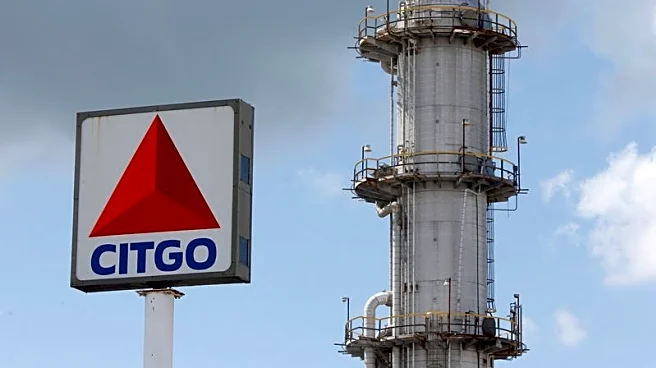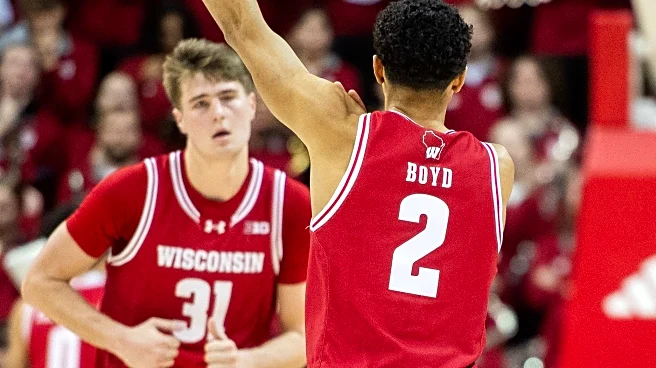What's Happening?
Eli Lilly's CDK4/6 inhibitor Verzenio has demonstrated a 15.8% reduction in the risk of death when used as an adjuvant treatment for early-stage HR-positive, HER2-negative breast cancer. The results, from
the monarchE trial, were presented at the ESMO cancer congress and published in Annals of Oncology. The data showed a significant overall survival benefit, with a 32% reduction in metastatic disease development. These findings could support regulatory filings to extend Verzenio's label, helping it maintain a competitive edge over Novartis' Kisqali.
Why It's Important?
The monarchE trial results reinforce Verzenio's position as a leading treatment for early-stage HR-positive, HER2-negative breast cancer. The demonstrated survival benefit is significant for patients, as it offers a new standard of care that could improve long-term outcomes. This development is crucial for Lilly as it seeks to differentiate Verzenio from competitors like Kisqali, which has also shown promise in this patient population. The findings could influence treatment guidelines and impact the competitive landscape in the oncology market.
What's Next?
Lilly plans to use the monarchE trial data to support regulatory submissions for an expanded indication of Verzenio. If approved, this could lead to increased adoption of the drug in clinical practice, potentially boosting sales and market share. The oncology community will be closely watching for further follow-up data to confirm the long-term benefits of Verzenio. Additionally, the competitive dynamics between Verzenio and Kisqali will continue to evolve as both companies seek to establish their therapies as the preferred option for early-stage breast cancer treatment.











